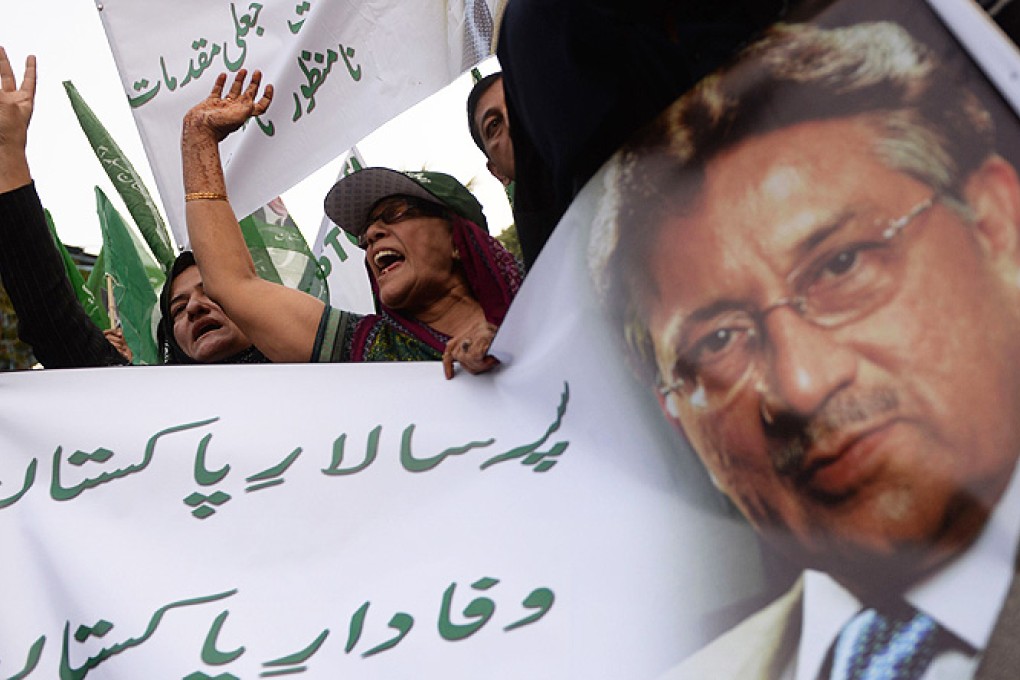Pakistan’s Musharraf arrives at court for first ‘treason’ hearing
Musharraf denounces treason charges as score-settling exercise by Prime Minister Nawaz Sharif

Pakistan’s ex-ruler Pervez Musharraf became the first former army chief to appear in a national court on Tuesday in a treason case seen as a test of civilian rule over the country’s powerful army.
The 70-year-old arrived in a heavily protected cavalcade of at least half a dozen vehicles wearing a dark blazer and appearing relaxed during a hearing that lasted only a few minutes.
He sat in a witness box and stood briefly when addressed by the judge, but did not speak. Asked afterwards how he was feeling, he said that he was “good”.
He faces treason charges, which can carry the death penalty, over his suspension of the constitution and imposition of a state of emergency in 2007 while he was president.
He was first ordered to appear before the tribunal on December 24, but has missed repeated hearings since then due to bomb scares and health problems that saw him complain of a heart ailment.
His defence lawyer Anwar Mansoor argued on Tuesday that judge Faisal Arab had not responded to a challenge to the court’s ability to try the former general, which Arab promised to decide on Friday.